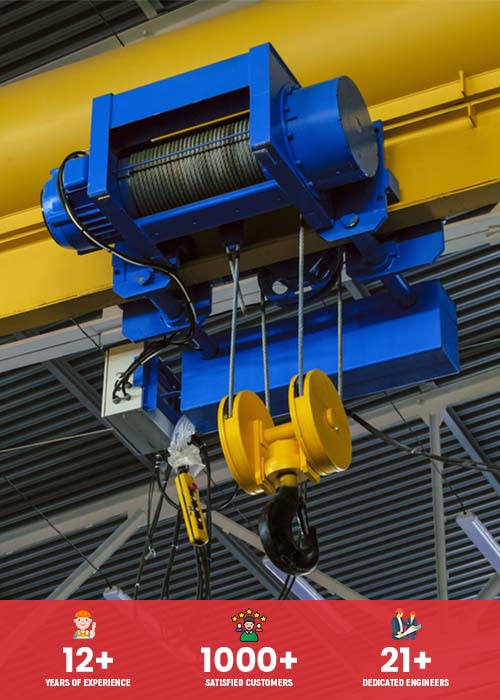Gantry and Jib Crane: Which One Suits Your Application the Best?
When lifting and maneuvering heavy loads, gantry and jib cranes are two of the most commonly used solutions. Whether working in a dry dock or loading large cargo onto trucks, these two tools provide dependable functionality that meets your needs. But with both having similar capabilities, how do you determine which is best suited for your project? Gantry Crane Manufacturers in India are renowned for their quality and reliable products, manufactured using advanced technology to ensure safe and efficient operation. In this blog post, we’ll look in-depth at the differences between gantry and jib cranes to help you decide when to select the right crane solution for your application.
Overview of Gantry and Jib Cranes and Their Applications
A gantry crane is a type of overhead crane that utilizes two side frames that span an area and are joined together by longitudinal beams. The trolley and hoist move along the beams, allowing them to lift and transport materials across vast areas. Gantry cranes can be used indoors and outdoors, depending on the size and design of the structure. They are commonly used in construction, manufacturing, shipping, port operations, rail yards, engineering workshops, maintenance facilities, and storage warehouses.
Jib cranes are overhead cranes that use either a fixed or cantilevered support arm to lift objects. This type of crane is smaller than other overhead cranes but offers more flexibility when moving materials up and down. Jib cranes are often used in industrial and manufacturing settings, providing a great range of movement in tight spaces. They can be used for light to heavy loads, depending on the size and design of the crane.
The difference in design
The primary distinction between jib cranes and gantry cranes is in their construction. A gantry crane is characterized by a horizontal I-beam that spans the distance between two points of end or support. These terminals typically have wheels so that the crane itself or the goods moved by the crane can be transferred to new places. A jib crane, on the other hand, is controlled by a single operator. As a rule, you’ll find it mounted to the floor or a wall. In addition, it can be used as a mobile crane.
The difference in movement
The gantry crane, comprised of a chain house and a trolley, moves loads along the I-beam’s horizontal plane. The jib crane is also helpful for this purpose. However, portability is required to serve the same purpose as a gantry crane. If the jib crane is installed underground, working distances will be reduced.
Factors to Consider While Buying Gantry Crane
- Capacity: It is essential to consider the capacity of a gantry crane before making the purchase. The power should be determined based on the weight and size of the material or object that needs to be lifted by the crane.
- Application: Similarly, it is necessary to determine the application for which the gantry crane will be used. Different types of cranes are available in the market with other features and specifications, so it’s essential to select one depending on its application.
- Mobility: Most cranes today come with wheels and castors for easy mobility; however, some models do not have this feature and require additional components like hoists to move around. It is thus essential to check whether the model you are buying is mobile.
- Price: Price is another crucial factor when purchasing a gantry crane. Different models have different prices, so selecting one within your budget is essential. It’s also possible to find used gantry cranes, which can be purchased much lower than new ones.
- Maintenance: Regular maintenance is necessary for all types of machines, including gantry cranes, to ensure they remain safe and efficient during operation. Ensure you check the manufacturer’s maintenance procedures before making the purchase.
- Safety features: Gantry cranes should have certain safety features such as overload protection, emergency stop, and other similar features. Ensuring that the model you buy has these safety features is essential.
- Warranty: Most manufacturers offer warranties for their gantry cranes, so checking this before purchasing is essential. This will ensure that the manufacturer will cover any repair or replacement costs in case of any defect or malfunctioning of the crane.




